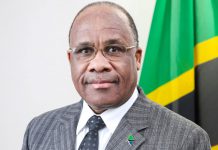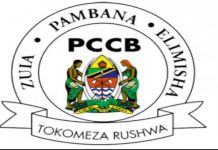MUHIMBILI National Hospital (MNH) is finalising procedures for embarking on bone marrow transplants by the end of March this year.
Commencement of the service gives new hope to needy patients and also positioning Tanzania to become the first East African and sixth African nation to perform the medical procedure.
African countries, which currently perform bone marrow transplants, are South Africa, Tunisia, Egypt, Comoro and Nigeria.
Bone marrow transplant, also known as stem cell transplant, refers to replacement of damaged or destroyed bone marrow with healthy bone marrow stem cells.
According to experts at Muhimbili National Hospital (MNH), the transplant is performed to patients whose stem cells have been damaged or destroyed due to diseases or conditions like sickle cell, leukemia and some types of cancers.
“MNH is currently finalising plans to begin offering bone marrow transplant and invitro fertilisation services,” said MNH Executive Director Prof Lawrence Museru on Thursday, during a meeting organised by the Medical Association of Tanzania (MAT).
He said the procedures will be performed at Muhimbili and Mloganzila hospitals.
The meeting which was graced by President John Magufuli brought together 1,500 delegates to commemorate the 55th anniversary of MAT and 2nd Tanzania Doctors’ Day scheduled for March 4 this year.
Prof Museru, who also doubles as MAT guardian, said that over the past four years, the government invested in human resources, including medical doctors, nurses pharmacists and other experts to realise its commitment of increasing access to specialised services and cut down the number of referrals abroad.
He said 3.5bn/- had been spent by the national hospital, noting that the investment had enabled the national facility to start offering specialised services such as kidney transplant, cochlear implant and interventional radiology which were not available in the country.
“These services have in total saved more than 34bn/- that would have been spent on overseas treatment,” Prof Museru said.
He said that other institutions offering specialised services included Muhimbili Orthopaedic Institute (MOI) Jakaya Kikwete Cardiac Institute (JKCI ), Ocean Road Cancer Institute (ORCI), Benjamin Mkapa Hospital (BMH), Bugando and Kilimanjaro Christian Medical Centre (KCMC).
“The provision of these services in the country is an indication that they can efficiently be performed in the country,” he said.
Prof Museru, however, commended the government for releasing 5bn/- to be spent on training specialist doctors. He said the fund will be spent on training 600 specialist doctors over a six-year period.
Prof Museru said that through the fund a total of 175 students were enrolled in various colleges last year.
Prof Museru said such efforts focus on reducing the experts’ gap by ensuring the availability of specialists for serving the people.
MOI Executive Director Dr Respicious Boniface commended the fifth phase government for the huge investments aimed at strengthening specialised services.
He said currently, specialised services were available even at regional hospitals.
Dr Boniface said that the funds provided by the government for completing construction of their building and purchasing equipment had improved provision of services at his institution.
He said in the past, MOI had only eight beds at the Intensive Care Unit (ICU) but the number had increased to 18.
Dr Boniface said the number of operation theaters had also increased from six to nine, adding that the hospital had also purchased modern radiology machines such as CT- Scan.
“Investment in hospital infrastructure has helped to improve the services … currently we are performing between 700 and 900 surgeries while we used to conduct betwen 400 and 500 surgeries per month,” Dr Boniface said







